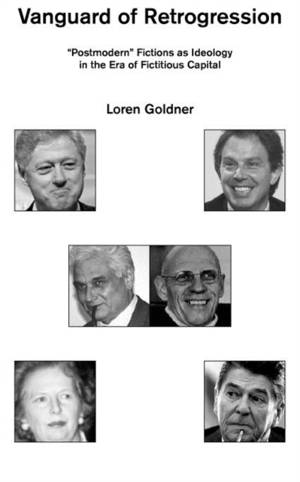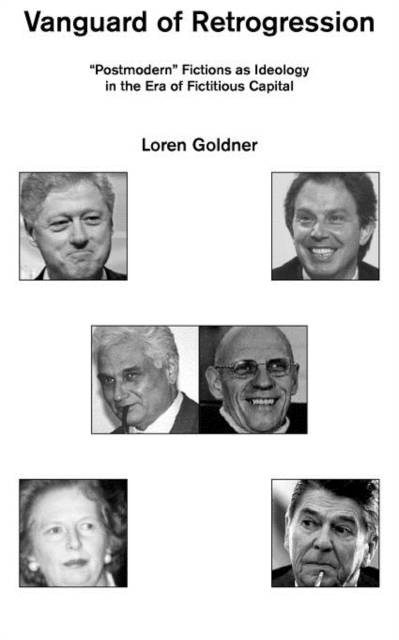
En raison d'une grêve chez bpost, votre commande pourrait être retardée. Vous avez besoin d’un livre rapidement ? Nos magasins vous accueillent à bras ouverts !
- Retrait gratuit dans votre magasin Club
- 7.000.000 titres dans notre catalogue
- Payer en toute sécurité
- Toujours un magasin près de chez vous
En raison de la grêve chez bpost, votre commande pourrait être retardée. Vous avez besoin d’un livre rapidement ? Nos magasins vous accueillent à bras ouverts !
- Retrait gratuit dans votre magasin Club
- 7.000.0000 titres dans notre catalogue
- Payer en toute sécurité
- Toujours un magasin près de chez vous
Description
Arrived at its very late phase, capitalism has been devouring its own, turning on what remained of its earlier emancipatory social and cultural legacy as if to consciously preclude its supersession by a higher organization of society. It has gentrified culture much as it has gentrified the urban landscape. In such a context, it was inevitable that some bright young junior professors, the leveraged-buyout artists of the cultural sphere, would wind up elaborating the "radical" intellectual counterpart of the hollowing out of the economy and the workforce which Thatcher, Reagan, Clinton, and Blair (not to mention the International Monetary Fund) have been implementing, without phrases. Though weakened by the Heidegger, DeMan, and Sokal affairs, and by a certain renewed interest in an actual struggle against capitalism, the "postmodernists," the progeny of Foucault and Derrida, are still with us. These fashionable theories first swept the world, beginning in the early 1970s, as part of a general war on the social at every level, which was the capitalist response to the 1968 upsurge and its aftermath. And behind the all-too-facile attacks on "master narratives" and "the subject," these ideologues, the theoreticians of "difference," were after the real game of the unitary working-class "subject" which had seriously frightened capital from 1968 to 1973. The pulverization of anything that might be construed as a "universal" (the "class with radical chains," as Marx put it); the breaking up of the big "worker fortresses" of Detroit, Manchester, Billancourt, and Turin; the staggering reversal throughout the West, after 1968, of earlier postwar trends toward greater income equality; the "identity politics" of various groups asserting they have nothing in common with anyone else-all create the climate for postmodern derision of such apparent "foundationalism." The essays in this book were written "against the grain" of much of the ideology of the past 50 years, that might be summarized with the term "middle-class radicalism." While such middle-class radicalism may have seemed, over the course of the twentieth century, to overlap with the Marxian project of communism, they are as ultimately opposed as Stirner and Bakunin on one hand and Marx and Luxemburg on the other. One might succinctly counterpose them as follows: middle-class radicalism conceives of freedom as "transgression," as the breaking of laws, the "refusal of all constraints," as the Situationist International (despite its other merits) put it 30 years ago, whereas the Marxian project of communism conceives of freedom, as the practical solution of a problematic, which evolved theoretically from Renaissance neo-Platonism through Spinoza and Leibniz to Kant, Hegel, and Feuerbach, as the transformation of laws, up to and including the physical laws of the universe, man's unique "Promethean" capacity. For the middle-class radical, "negation of the negation" view, the problems are "hierarchy," "authority," "domination," and "power"; for the Marxian communist view, the problems are the project of the abolition of value, commodity production, wage labor, and the proletariat (the latter being the commodity form of labor power within capitalism). From these latter the "negation of the negation" problematic is entirely recast, reformed, and superseded, and its heavy overlay of bourgeois ideology-freedom conceived without the transformation of necessity- discarded. These essays critique postmodernism as the latest episode of middle-class radicalism, and they explore the alternatives, namely a unified view of history and nature, drawing in part on a recovery of the neo-Platonic sources of Hegel and Marx, which postmodernism, rooted in Nietzsche and Heidegger, has been "crowding out" for three decades.
Spécifications
Parties prenantes
- Auteur(s) :
- Editeur:
Contenu
- Nombre de pages :
- 186
- Langue:
- Anglais
Caractéristiques
- EAN:
- 9780970030818
- Date de parution :
- 26-09-11
- Format:
- Livre broché
- Format numérique:
- Trade paperback (VS)
- Dimensions :
- 127 mm x 203 mm
- Poids :
- 190 g

Les avis
Nous publions uniquement les avis qui respectent les conditions requises. Consultez nos conditions pour les avis.






